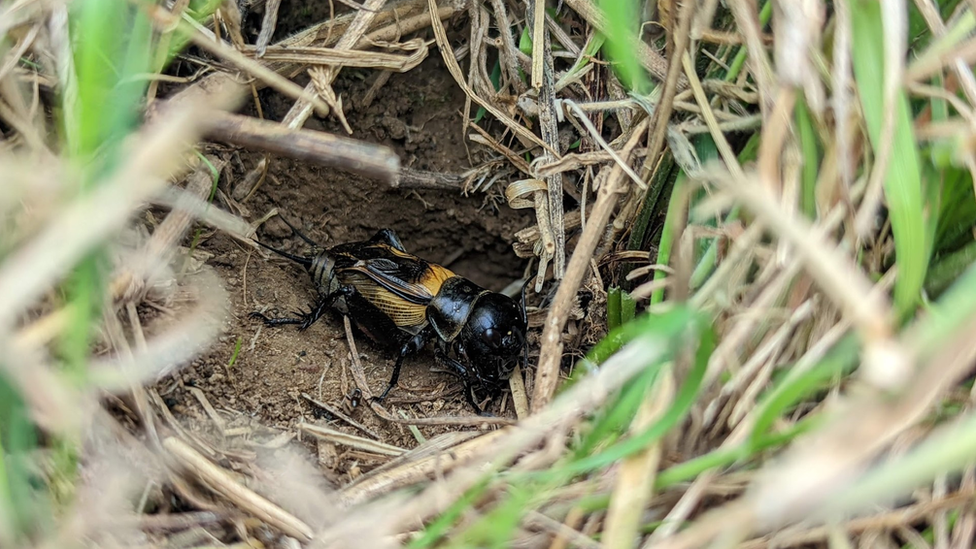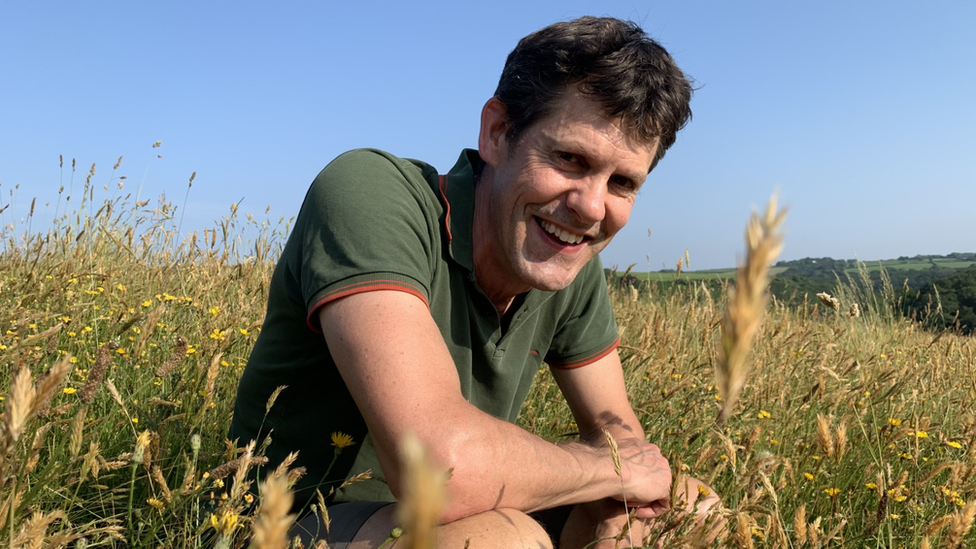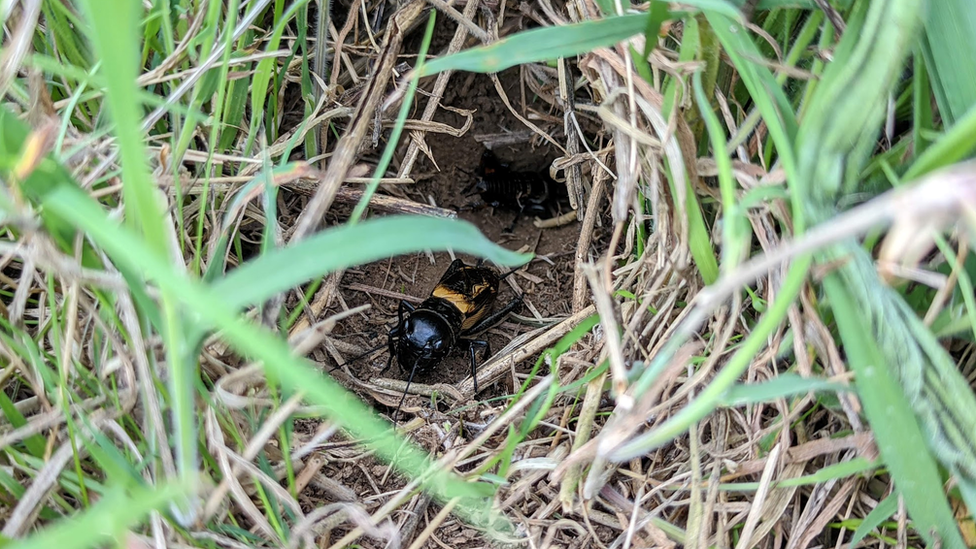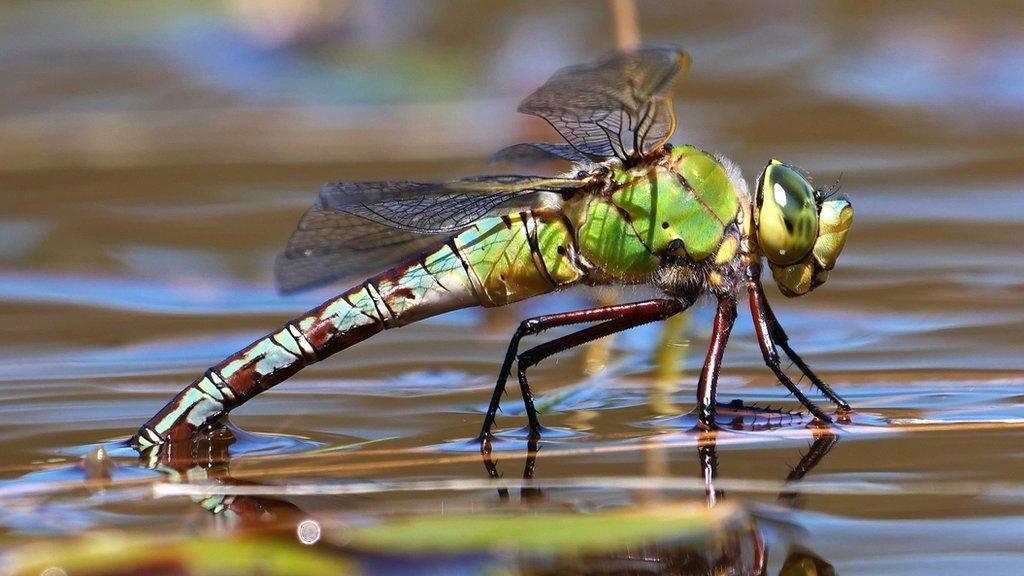Field cricket introduction experiment in Cornish meadow
- Published

The field cricket makes itself at home in a burrow in Cornwall
An experiment to see if field crickets could be introduced back into Cornwall could work, scientists have said.
In April 2022 biologists from the University of Exeter introduced 70 crickets from Spain to a Cornish meadow where they have bred in the hundreds.
Prof Tom Tregenza said there was now 1,000 field crickets in an organic field in Helford, in Cornwall.
The RSPB said the field cricket, external was "extremely rare" and had suffered due to agricultural changes.
Prof Tregenza said the species, which is now classified as vulnerable, was last recorded in Cornwall in 1906.

Prof Tom Tregenza, who has been studying crickets in northern Spain, introduced the population to the Cornish meadow
The evolutionary biologist said: "When we came in May we were walking over the hill and we heard one cricket in the neighbouring field and we thought, well if we can hear one cricket here there have got to be others and as we came into this field we heard this symphony of crickets and it was really extraordinary.
"We think there is now around 1,000 crickets in this field which is very exciting."
He added that there were now potentially more crickets in the Cornish meadow than exist across the whole of the rest of the UK.

The jump in numbers from 70 to 1,000 has scientists excited about the potential future for the vulnerable species
Prof Tregenza said they could not do the experiment using crickets from the pre-existing population in Sussex because their numbers were so small, they were heavily protected.
"It is an experiment to see could we bring crickets back to Cornwall and at the moment it looks like perhaps we could," he added.
The biologist said it was "hard to see an ecological downside to the experiment" as the flightless species was "almost certainly once a common feature of the British countryside".
Farmer, Charlie Pugh, allowed the project to take place in his field which he said had not been ploughed for years.
"We didn't think it would be a cricket sanctuary but my goodness we are so delighted it has become so," he said.
For the scientists the next part of the study will be to see if the crickets survive the winter.

Follow BBC News South West on Twitter, external, Facebook, external and Instagram, external. Send your story ideas to spotlight@bbc.co.uk.
- Published8 July 2023

- Published3 July 2023
- Published19 June 2023
